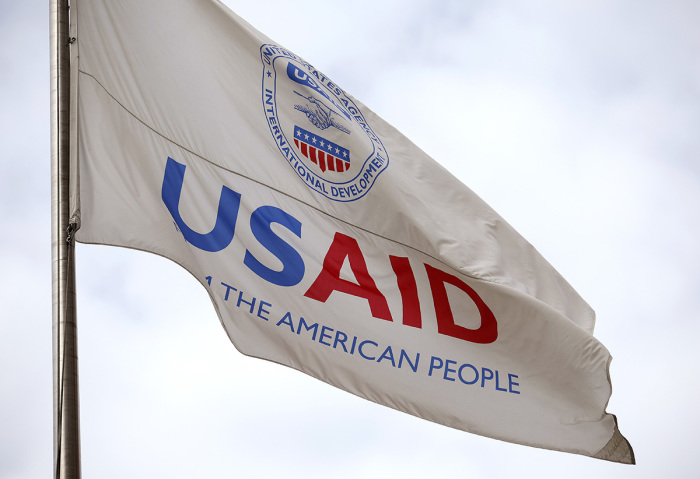
Three‑quarters of Evangelical Christian voters say they are concerned about the Trump administration’s planned cuts to foreign assistance, as a nationwide survey released this week suggests that reductions in overseas aid are the foremost worry for Evangelicals during the Trump administration’s first 100 days.
The online survey of over 1,000 Christian likely voters across the United States was commissioned by the progressive National Latino Evangelical Coalition and conducted by the research firm LSG from April 8 to 15. The study had a 3-percentage-point error margin and balanced participants by denomination, age, race, party affiliation and income.
About 76% of self‑identified Evangelicals — a largely Republican voting bloc — expressed concern with the drastic cuts to the foreign aid budget, citing fears it could expose fellow Christians abroad to greater persecution, harm American farmers and contribute to preventable deaths globally.
Those concerns pushed foreign assistance ahead of other topics, such as immigration and healthcare, on the list of pressing moral issues, according to the study. However, the poll was conducted before reports of potential deportations for Afghan Christian refugees that Christian leaders from across the political spectrum have been speaking out about in recent weeks.
In February, Christian refugee and humanitarian organizations voiced their opposition to plans by the State Department to cut 92% of foreign assistance-related grants to save approximately $60 billion. Those plans included a push to cut around 10,000 U.S. Agency for International Development and State Department grants and contracts.
The Trump administration contends that the cuts will eliminate “waste and abuse” at USAID, alleging the agency supported “ridiculous — and, in many cases, malicious — pet projects of entrenched bureaucrats, with next-to-no oversight.”
Matthew Soerens, vice president of advocacy and policy at World Relief, an Evangelical organization that receives funds from the State Department to resettle refugees in the U.S., believes Evangelicals are concerned about cuts to foreign assistance because they believe “every person — in every country — is made in the image of God and has inherent dignity.”
“It’s also why Evangelicals want to see refugees protected from persecution and immigration policies that protect family unity,” Soerens said in a statement shared with The Christian Post. “I hope our elected officials in the White House and in Congress will pay attention to these findings, listen to Christian voters and protect the vulnerable.”
Rev. Gabriel Salguero, president of the National Latino Evangelical Coalition and pastor of an Assemblies of God church in Florida, told The Alabama Political Reporter that the survey makes it “clear” that “a significant number of Christian voters — especially evangelicals — are not seeing their priorities or principles represented in this administration’s first 100 days.”
While foreign aid topped the most pressing needs of Evangelicals in the April survey, the same set of respondents voiced unease about domestic spending decisions that touch on poverty programs.
Seventy‑two percent opposed proposed Medicaid cuts they believe would affect children and the elderly, and 71% worried about reductions to the Supplemental Nutrition Assistance Program. The Child Tax Credit drew wide backing, with 75% favoring a Republican-led effort for an expansion.
Immigration policy revealed a more complex picture.
Sixty‑one percent of Evangelicals expressed support for a path to legal status for undocumented immigrants, yet most still favored removing those with criminal records. Nearly two‑thirds said they were troubled by recent refugee admissions pauses and by reports of mistaken deportations.
Regarding foreign policy specifics, support for certain White House budget proposals was limited.
Forty percent endorsed cutting assistance to Ukraine during its war with Russia. Only 20% approved of lifting tariffs on Russian goods.
Fewer than half of all Christians surveyed — and just 55% of Evangelicals — felt the administration’s first 100 days reflected Christian values.
In March, more than 100 mostly progressive Christian pastors and social‑justice advocates signed an open letter titled “Returning To Jesus: Practicing Lent In Our Time.”
Without naming President Trump, the letter criticized plans to trim “lifesaving international aid and humanitarian assistance that prevents hungry people from starving, keeps those in ill health from dying, and defends children and families lives from being destroyed.”
The signatories called the potential trade‑off between deficit reduction and help for low‑income households “unacceptable.”

















